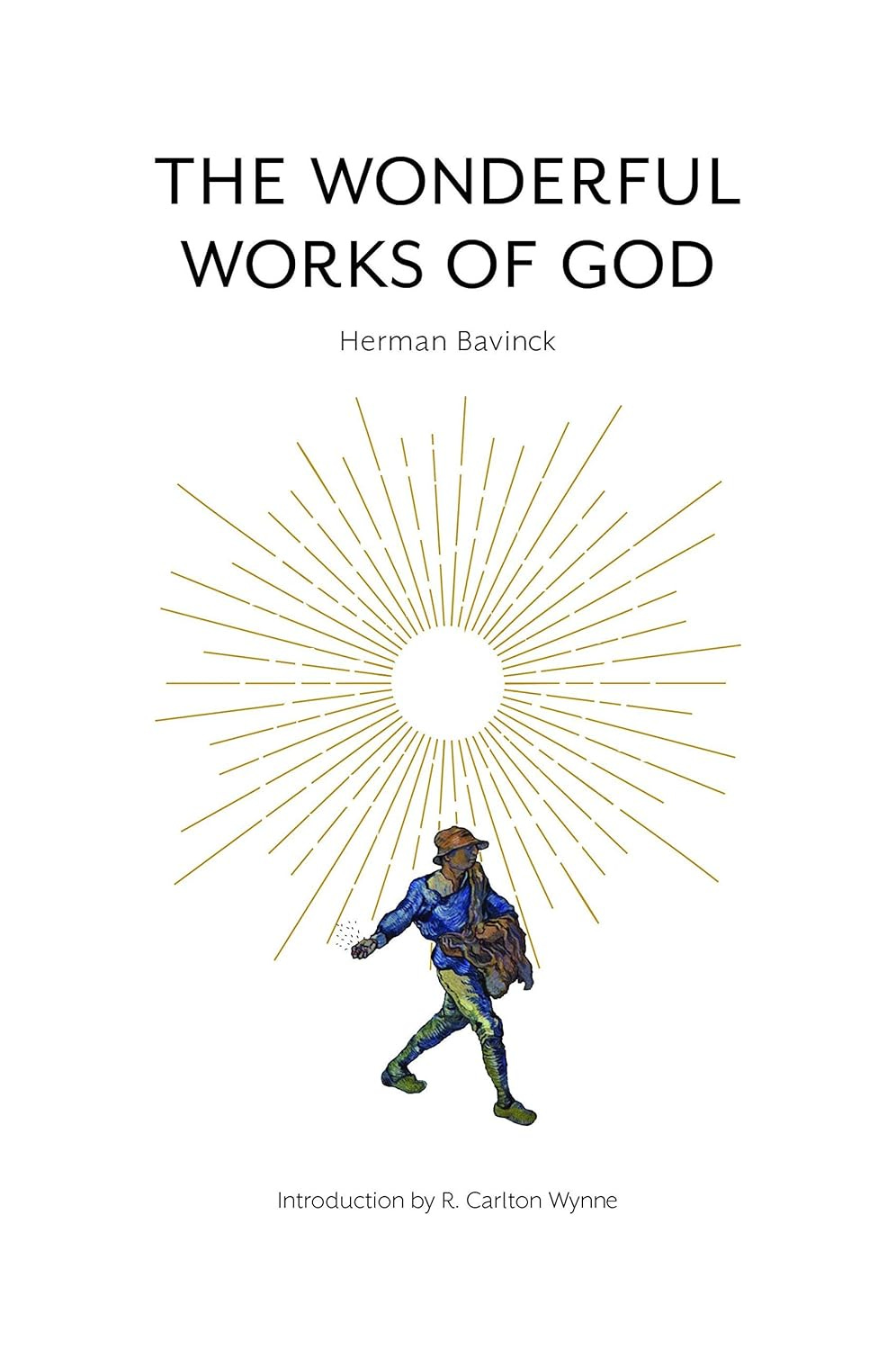One of the characteristics of Herman Bavinck’s “The Wonderful Works of God” is that his systematic theology has a distinctive earthiness to it. Unlike other Systematic Theologies, caught up in abstractions, Bavinck has the ability to weave together our daily life and concerns and, in a word, our real humanity into the life of God.
The introductory chapter alone, “Man’s Highest Good”, sets the tone for the rest of the book. Bavinck isn’t going to pit science or culture or philosophy against scripture. Rather, he’s going to show us how God’s creation is a giant clue to what we find in the storyline of scripture.
As just one example, I thought I’d show you today his reflections on art. I can’t remember another systematic theology I’ve read that mentioned art. Yet for Bavinck, art is part of the sweeping cosmos God has given us as a clue to himself. Almost nothing is excluded from this book. It is expansive.
First, Bavinck points out how scripture itself affirms that art and craftsmenship is a gift from God:
Art, too, is a gift of God. Just as the Lord Himself is not truth and holiness alone but also glory, and one who spreads the beauty of His name abroad over all His works, so it is He, too, who by His Spirit equips the artists with wisdom and understanding and knowledge in all manner of workmanship (Ex. 31:3 and 35:31).
In Exodus 31, God is affirming His artistic gift to Bezalel, words that are repeated nearly word for word (for emphasis) in 35:31:
See, I have chosen Bezalel son of Uri, the son of Hur, of the tribe of Judah, and I have filled him with the Spirit of God, with wisdom, with understanding, with knowledge and with all kinds of skills— to make artistic designs for work in gold, silver and bronze, to cut and set stones, to work in wood, and to engage in all kinds of crafts.
Having established artistry as something God’s Spirit stirs us toward, Bavinck asks why God would give us this kind of gift:
Art is therefore in the first place an evidence of man’s ability to do and to make. This ability is spiritual in character and it gives expression to his deep longings, his high ideals, and his insatiable craving for harmony. Besides, art in all its works and ways conjures up an ideal world before us, in which the discords of our existence on earth are purged in a gratifying harmony. Thus a beauty is disclosed which in this fallen world had been obscured by the wise but is discovered to the simple eye of the artist. And because art thus paints for us a picture of an other and higher reality, it is a comfort in our life, it lifts the soul up out of consternation, and fills our hearts with hope and joy.
For Bavinck, the arts express the inexpressible longing we each feel for beauty, harmony, and goodness in the world. Art, for Bavinck, is able to contribute something unique to our human experience. The arts aren’t just a creative way to impart abstract principles. Rather, they express the existential longings inside of each of us. In that way, art stirs up our deepest desires, not only to keep us in touch with these longings but to provide us true comfort, hope and joy in our lives.
The arts, then, are truly a gift in and of themselves.
But this does NOT make them the only thing we need to find satisfaction in this life:
But, though it is much that art can accomplish, it is only in the imagination that we can enjoy the beauty which art discloses. Art cannot close the gulf between the ideal and the real. It cannot make the yonder of its vision the here of our present world. It shows us the glory of Canaan from a distance, but it does not usher us into the better country nor make us citizens of it. Art is much, but it is not everything. It is not, as a man of distinction in its domain once called it, the holiest and noblest thing, the one and only religion and the one and only salvation of man. Art cannot reconcile for sin. It cannot cleanse us of our pollution. And it is not able even to dry our tears in the griefs of life.
Notice that Bavinck clearly sees God’s handiwork in the arts. They are not, in his mind, an optional add-on but a necessary ingredient for a fulfilling life in a hard world. And yet, he also criticizes those who make too much of the arts: they can show us what we long for. But ultimately, they cannot give it to us. Like all things, for Bavinck, the arts are a golden thread that lead us back to our Creator.




